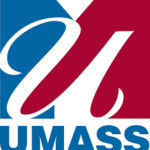Joys of Living and Learning in Massachusetts, USA
TRANSCEND MEMBERS, 29 Oct 2018
Dr. Ravi P Bhatia – TRANSCEND Media Service
26 Oct 2018 – Many pilgrims from England seeking religious freedom had come to settle in 1620 in the Bay area near the modern city of Boston adjacent to the Atlantic Ocean. It was then called Bay State or sometimes as Pilgrim State. Subsequently, it acquired the modern name after the indigenous tribe named MASSACHUSETT that used to live in this region. The word in the tribal language meant people living in the Great Hill that was near to Boston
Massachusetts was the sixth state to join United States in February 1788. It strongly resisted British oppression and protested against unjust taxation. It was the first state to abolish slavery. The State has evolved economically, politically and culturally over the years. The well-known Kennedy family that produced senators and President John F Kennedy has their ancestral home in this State.
It also has several good universities and academic centers such as Harvard, University of Brandeis, Tufts, MIT, University of Massachusetts (UMass), Amherst College, Boston College, Smith College, and several other academically excellent institutions. The UMass and the Amherst College were in Amherst itself but Smith College was some distance away, in Northampton.
The Amherst College was a boys’ college and the Smith admitted only women students but it was not uncommon for relationships to develop between students of these two Colleges. One of the most widely known relations that developed and evolved into marriage was between the grandson of the former President Dwight Eisenhower and the daughter of another former President Richard Nixon. No wonder these Colleges were keenly sought after by brilliant students.
However, UMass was coeducational. 
University of Massachusetts is a well-known academic institution for teaching and research. I had studied in its Amherst Campus for five years more than half a century ago. One of my most memorable memories of my stay in UMass was a visit with a group of other students to a neighboring farm where we could see the moon clearly. It was a full moon night. A few days earlier on July 20, 1969 two Americans who were circling the moon in their Apollo 11 spacecraft, landed safely on the moon in their lunar module Eagle. Like millions of other people, the landing on the moon by two men awed us that night – how could people land on the moon? Yes, technology had advanced beyond any limit. Today, of course, there have been other spacecrafts, which have landed astronauts on the moon.
Another point that I still remember is a strange word that is hard to pronounce. I learnt that there is a funny word called mugwump in the indigenous language of the MASSACHUSETT people.
The funny word meant something that I did not then know. Now, half a century later, I have learnt that it means a person who sits on the fence and is not able to decide what to do.
Well, there is no time limit for learning.
______________________________________________
Dr Ravi P Bhatia is a member of the TRANSCEND Network for Peace Development Environment, an educationist, Gandhian scholar and peace researcher. Retired professor, Delhi University. His new book, A Garland of Ideas—Gandhian, Religious, Educational, Environmental was published recently in Delhi. ravipbhatia@gmail.com
This article originally appeared on Transcend Media Service (TMS) on 29 Oct 2018.
Anticopyright: Editorials and articles originated on TMS may be freely reprinted, disseminated, translated and used as background material, provided an acknowledgement and link to the source, TMS: Joys of Living and Learning in Massachusetts, USA, is included. Thank you.
If you enjoyed this article, please donate to TMS to join the growing list of TMS Supporters.

This work is licensed under a CC BY-NC 4.0 License.
Ravi ~~
Thank you once again for another charming and meaningful article.
In 1969, while you were in Amherst watching the moon landing, I was in Seoul with the U.S. Peace Corps. A good number of Seoul-based Peace Corps Volunteers assembled at one of the staff members homes to watch the landing. In our wonderment, little did we know where technology was leading us. Further out into the unknown, unknowable universe.
The curiosity of “what’s out there” and how can we get to know it better so that it may serve us has led us to 2018 and the technology-infused confusion of our times where human beings are merging into the wiring and screens and forgetting to look into each other’s eyes.
We in “advanced” societies have become “mugwumps”. From pre-school to universities, we are taught and encouraged to sit on the fence and stare into hopeless screens, making light of the humanities while focused on progress/profit. Most turning indifferent eyes towards Hiroshima and Nagasaki, the strengthening, more numerous typhoons, and the non-human advance of hi-tech. As if we no longer cared about the three existential threats to humankind.
The only thing really worth knowing is the light within those that share this receding consciousness, each a universe unto themselves.
Thank you for once again reminding us to care with your quiet attention to essential human thoughts.
Rob